South America Newsletter March 2025
This month we bring you news from Venezuela, Colombia, Ecuador, Uruguay, Argentina, Chile and Suriname
Highlights are:
- Colombia: Amnesty has issued a new Urgent Action calling on the National Police to guarantee the safety of members of the fishers’ association FEDEPESAN and to prevent their forced displacement
- Ecuador: Amnesty has issued a new Urgent Action calling on the Attorney General to undertake a search for 23 men whose whereabouts remain unknown following military operations carried out during 2024 and to investigate these events as possible cases of enforced disappearances.
- Uruguay: Uruguay’s new president, Yamandu Orsi, has taken office. Orsi, who is regarded as centre-left, narrowly won last November’s election against the ruling centre-right coalition.
- Suriname: The government is considering legislation that would finally establish territorial rights for Indigenous and Tribal communities.
- Argentina: President Javier Milei temporarily appointed two Supreme Court judges by decree, bypassing Congress during its summer recess in a move seen as an overreach of executive power.
- Chile: Five adoptees flew from the USA last month to reunite with their birth families in Chile for the first time after they were stolen as infants during the Augusto Pinochet dictatorship
- Venezuela: Amnesty International has issued a new Urgent Action calling for the release of four human rights defenders arbitrarily detained.
COLOMBIA

Amnesty has issued a new Urgent Action calling on the National Police to guarantee the safety of members of the fishers’ association FEDEPESAN and to prevent their forced displacement. On 15 February, FEDEPESAN announced that they felt forced to carry out a collective displacement from the lakes and rivers surrounding the city of Barrancabermeja. In recent years, including the first two months of 2025, FEDEPESAN members have been subjected to numerous instances of harassment, threats, robbery, extortion, and even attempted murder by armed groups.
A new report from the United Nations Office of the High Commissioner for Human Rights (OHCHR) details how armed groups use violence to exert control over the population, furthering their own economic interests and undermining governance. According to the report, the situation disproportionately affects Indigenous Peoples, Afro-descendant communities and peasants. The OHCHR urges the authorities to prioritise the protection of civilians emphasises the need to strengthen governance in a number of regions of the country.
ECUADOR
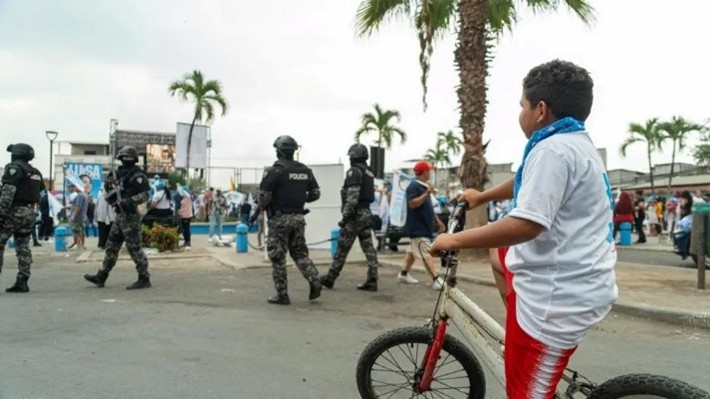
Amnesty has issued a new Urgent Action calling on the Attorney General to undertake a search for 23 men whose whereabouts remain unknown following military operations carried out during 2024 and to investigate these events as possible cases of enforced disappearances.
The first round of the country’s presidential election produced a close result with the incumbent centre-right candidate, Daniel Noboa, and his main left-wing challenger Luisa González receiving nearly identical percentages of the vote. The election will therefore go to a second round in April.
URUGUAY
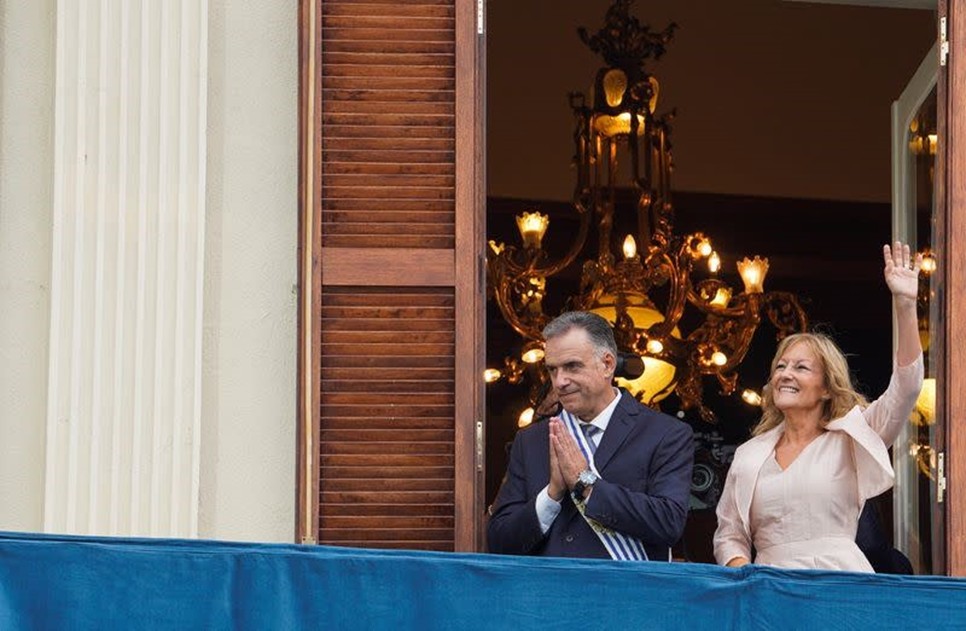
Uruguay’s new president, Yamandu Orsi, has taken office. Orsi, who is regarded as centre-left, narrowly won last November’s election against the ruling centre-right coalition. As a moderate, Orsi has promised to strike a different balance between social welfare and economic growth by ushering in what he described as a “modern left” agenda.
SURINAME
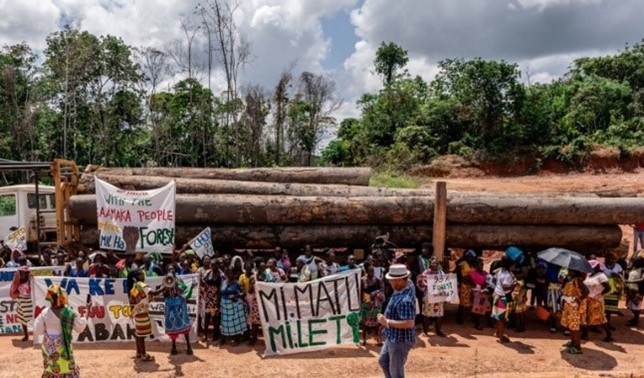
The government is considering legislation that would finally establish territorial rights for Indigenous and Tribal communities. However, Indigenous and Tribal communities say it still gives the government too much power as it would be allowed to continue developing on ancestral land if deemed in the “public interest”, thus removing communities’ ability to reject development projects on their land, such as infrastructure, agribusiness and logging and mining concessions.
ARGENTINA
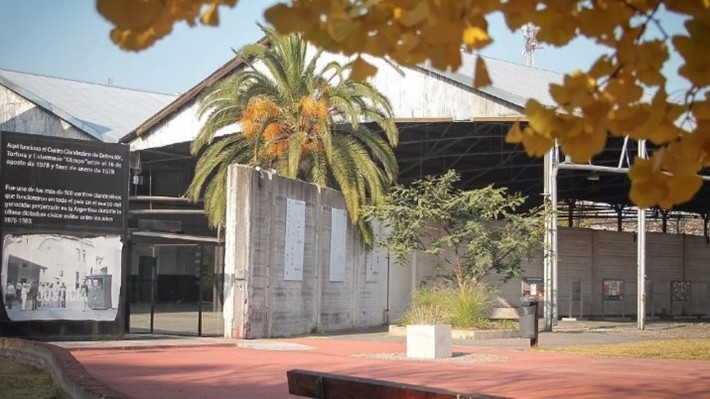
The site of the former clandestine detention and torture site known as Olimpo, now a “memory site”
President Javier Milei temporarily appointed two Supreme Court judges by decree, bypassing Congress during its summer recess in a move seen as an overreach of executive power. Human Rights Watch criticized Milei’s move as “one of the most serious attacks against the independence of the Supreme Court in Argentina since the return of democracy.” Since President Milei had nominated Judges Lijo and García-Mansilla in April 2024, numerous rights groups and others expressed concern over Lijo’s record as a federal judge and García-Mansilla’s views on sexual and reproductive health rights.
Coincidentally Federal Judge Lijo had just ordered Human Rights Secretary Alberto Baños to safeguard former detention and torture centres dating back to Argentina’s 1976-1983 military dictatorship. He said the National Human Rights Secretariat is required to adopt the necessary measures with the aim of guaranteeing a team of trained staff so that the “memory sites” continue to function. During the Milei Presidency, the Human Rights Secretariat has already lost 250 workers. Also 90 employees at the ex-ESMA Memory Museum have been relieved of their responsibilities and placed on “active stand-by”.
CHILE
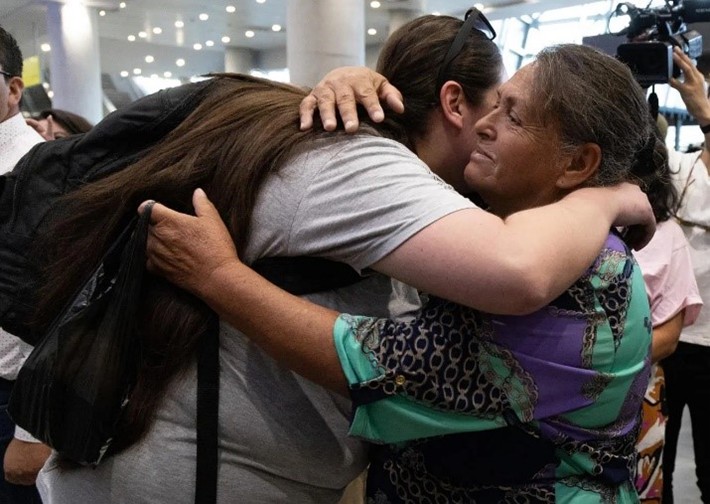
Teresa del Carmen Araya hugs her daughter Jada Thiemann upon her arrival in Santiago
Five adoptees flew from the USA last month to reunite with their birth families in Chile for the first time after they were stolen as infants during the Augusto Pinochet dictatorship. Some 20,000 Chilean minors were irregularly adopted by foreign families between 1970 and 1990, according to figures from the Justice system. Of these, only 1,000 have reunited with their families. According to the National Institute of Human Rights, the Chilean State does not recognize as victims those adopted illegally between the 1960s and 1990s. Moreover, “it is far from contributing to establishing the truth or achieving reunions.”
VENEZUELA
Amnesty International has issued a new Urgent Action calling for the release of Javier Tarazona, detained in 2021, and Rocio San Miguel, Carlos Julio Rojas, and Kennedy Tejeda, all three of whom were detained in 2024. Javier Tarazona was the director of the non-governmental organisation FundaRedes, before he was detained whilst reporting harassment from the Venezuelan authorities Rocio San Miguel is a lawyer and president of the civil society organisation Control Ciudadno. Carlos Julio Rojas is a journalist. Kennedy Tejeda is a lawyer and volunteer for non-governmental organisation Foro Penal.
In a common press release, members of the UN’s Working Group on enforced or involuntary disappearances and of the Inter-American Commission on Human Rights have noted an increase in forced disappearances to silence members of the opposition and human rights defenders. Both have called on Venezuela to stop all enforced disappearances and to tell the UN and IACHR where detainees are held.
The Guyanan President triggered a military response and diplomatic action after a Venezuelan coastguard patrol entered its waters and approached an off-shore oil facility. There has been a longstanding argument between the two countries over their land and maritime regions, with President Maduro having threatened to annex the mineral-rich Essequibo region from Guyana by force in 2023 and 2024.
All the best,
South America Team – David Rogers (Argentina and Chile), James Baird (Venezuela) and Graham Minter (rest of South America,). And please don’t forget that you can follow us on our Facebook page and Twitter.
